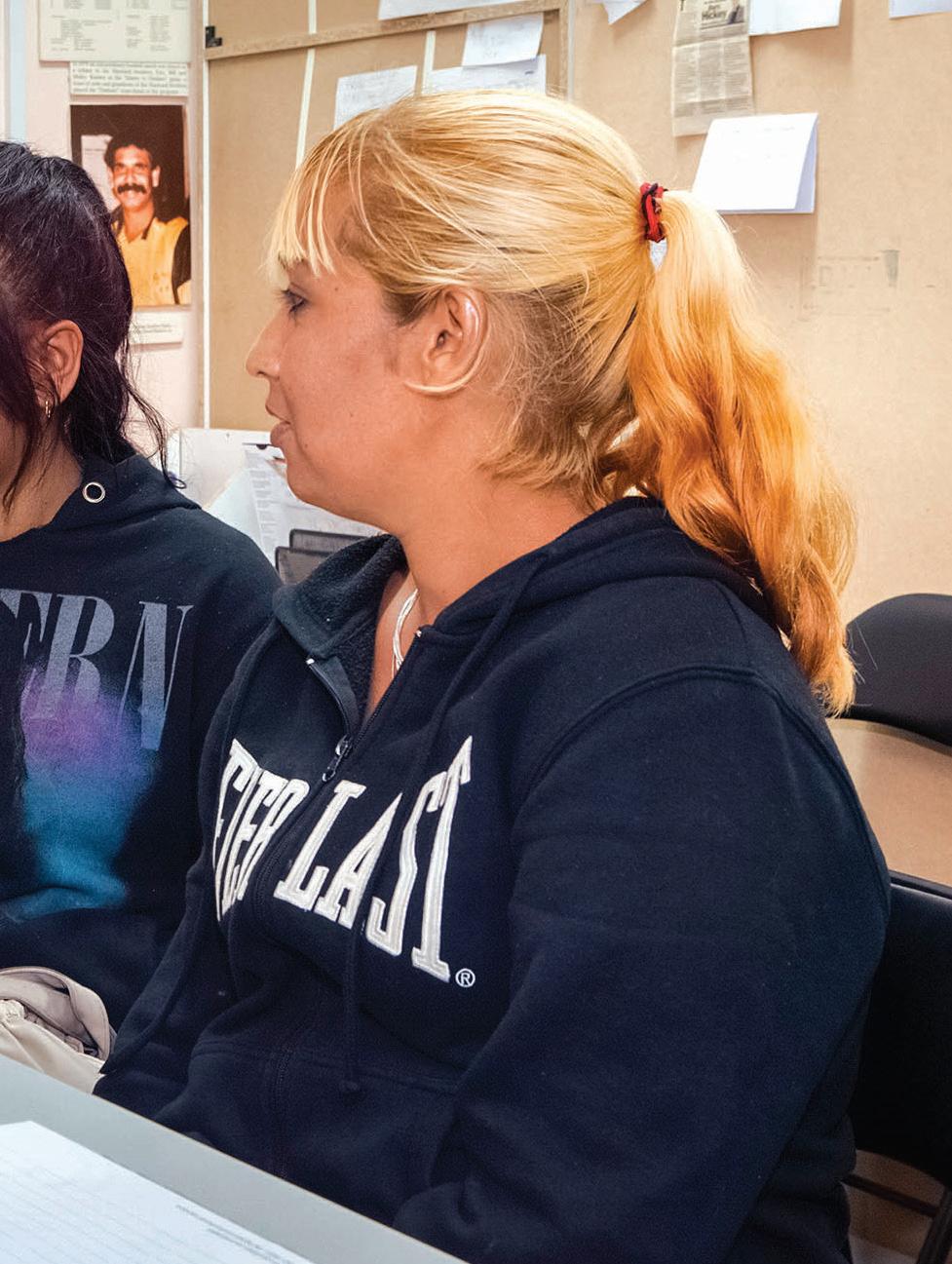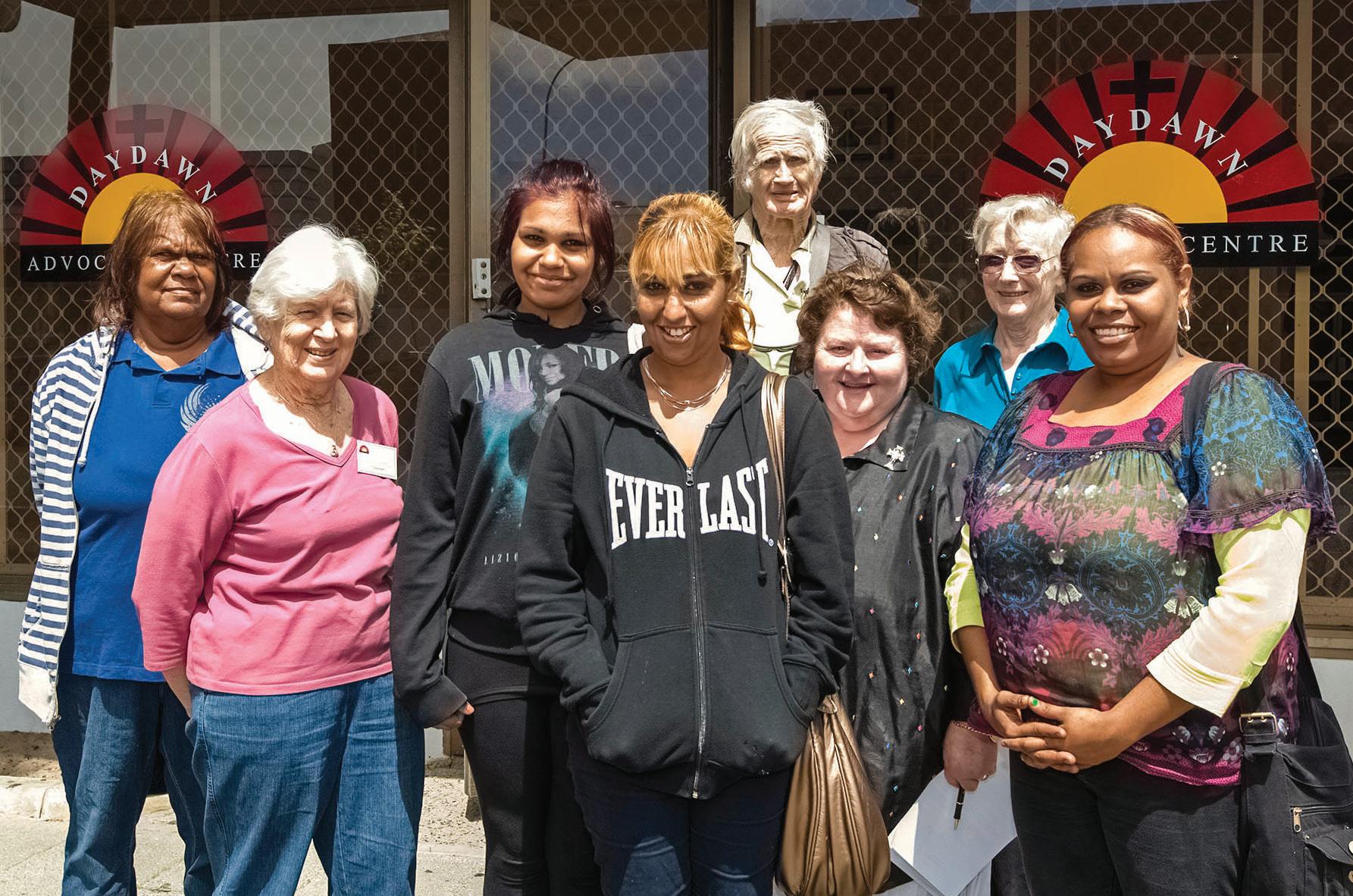
4 minute read
Daydawn
Daydawn Advocacy Centre, the Catholic agency that advocates in the area of indigenous housing, usually sees some 3500 visitors walk through the doors each year, many of whom with dependent children and facing homelessness.
CATHOLIC CHARITY COMBATS CORONAVIRUS
WORDS Eric Martin
That number increased dramatically in 2020, the year of COVID-19, as attested by Daydawn Director Mark Reidy. “We have three paid staff members and we’ve been working extra hours rather than less,” Mr Reidy said. “Our volunteers were all working from home and we kept them busy, feeding out letters and contact numbers to them to chase down on behalf of the people we assist. “That awareness that our clients were most vulnerable to COVID-19, most likely to be impacted and on the front line, was what motivated us to implement our own immediate crisis response: there were a few gaps and we were able to address those gaps.” Homelessness became a far more apparent issue during COVID-19; the virus amplified existing issues and vulnerabilities – Daydawn reported that the pandemic resulted in an upsurge in demand for their services, especially in the area of temporary accommodation – even though the WA Housing Department put a hold on eviction notices being issued during the current crisis. “There were a lot of people living on the street who started to panic about the virus, they heard about the plan to place homeless people in hotels and with a grant that we received during this time, we used some of that money to help house people,” Mr Reidy added. “During the pandemic we had as many as 20 to 30 phone calls a day for assistance: there was a bit of a panic because we can only house so many.” Daydawn started working with the Departmental Taskforce and other organisations, such as Shelter WA, Uniting Care West, Anglicare and other communities, to accommodate some 80 people during WA’s lockdown. “We had 40 people at one point in a hotel in Fremantle and to take that as a case study: there were families, single people and couples; the youngest were children within those families and the oldest were in their 60s,” Mr Reidy shared.
Daydawn Advocacy Centre, the Catholic agency that advocates in the area of indigenous housing, is located at Piccadilly Square Central, 13/5 Aberdeen St, Perth. Photo: Supplied

“By partnering with other agencies, who are able to assist people under threat of eviction by providing practical assistance to ensure their government housing is maintained at an acceptable standard, we have ensured that many, many children have been allowed to stay in their homes.” Jesse Noakes, Daydawn’s legal representative, spoke with The Record about the surge in demand for this service. “As the disease was beginning to spread through the community people were starting to get anxious and scared about what it might mean for them and their families,” Mr Noakes said. “It was great to be able to provide an immediate solution for some of our clients and to continue to do that, but going forward, no-one really wants
to live in a hotel long-term; what people want is a home to call their own and unfortunately there are still all those systemic barriers to that which were there previously. “Once you’ve got a house, it provides the foundation for everything else – it provides a basic level of security and stability. “And that was one of the things that we saw at the hotel, was that even just a few nights off the street with a safe, secure roof over their head [a place to rest, keep clean and stay safe] it was remarkable to see that it wasn’t just a way to prevent the physical risk of infection, it was also very stabilising and centring from a psychological perspective,” Mr Noakes explained. “It gave people the opportunity to do things that maybe that hadn’t been able to do before: things like doing housing applications, getting comprehensive health checks – simply because there was a period of calm in what has otherwise been a very chaotic life on the streets.”
Homelessness became a far more apparent issue during COVID-19: the virus amplified existing issues and vulnerabilities, even though the WA Housing Department put a hold on eviction notices being issued during the current crisis. Photo: Eric Martin

With the Christmas season almost upon us, Mr Reidy reports that even though the increased Centrelink payments allowed disadvantaged people to move into temporary accommodation, due to the cost of these places their money does not last the fortnight. “So we are still trying to assist bridging the most vulnerable people, such as women with children, and the elderly in being able to maintain those places. Sadly, though our funds are limited and we are restricted in the numbers we can assist,” Mr Reidy said.










